A fisherman, construction worker, dentist and insurance salesman. I can’t quite remember their names (I’ve been drinking), but their occupations make an impression. These people come from all walks of life, but beer, community and (um) oysters are bringing them together tonight. I’m in Newport, Oregon, relaxing after a long day of interviews and inspections at the headquarters of Rogue Brewery and Spirits. These gentlemen before us are called the Muther Shuckers.
They are basically the first Rogue super fans, still living in Newport, canonized patrons of the original Rogue brewpub (called Rogue Ales Public House) which sits on Yaquina Bay next to the busy fisheries. When Rogue kindly asks (free beers!), they entertain guests with both oysters and beer, representing the company’s wild, Pacific spirit. The Muther Shuckers are circling a table covered in cardboard and oysters on the pub patio, shucking a sea feast of invertebrates and beer on CBB’s behalf. Their hospitality is only outmatched by their mythos — tales and adventures from the bar inside. Steve Swan, a Rogue Nation ambassador (pictured below giving us the pledge) and the most cantankerous and endearing of the crew, recounts a story of someone trying to put up a new bell in the pub.
“So I went and grabbed my gun,” says Swan at one point. Everyone laughs, and then someone hands me a beer and a bowl full of dinosaur-sized oysters, floating in steamy garlic soup.
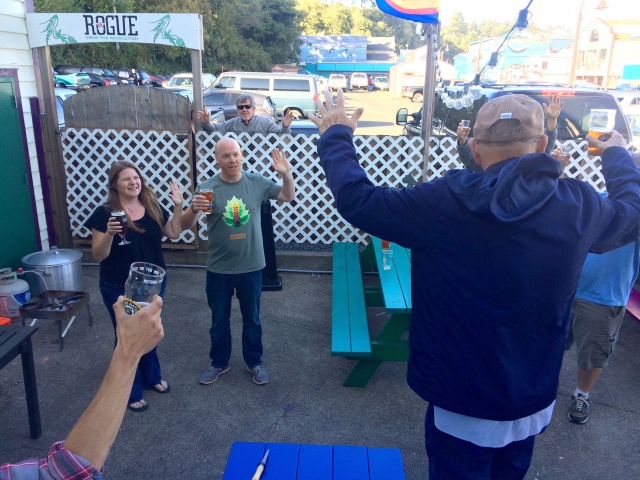
How was it, Doughtery asks.
I quote the brewmaster: A complexity bomb.
Doughtery smiles and begins to tell me how sometimes when he’s up before dawn, crossing the Yaquina Bay Bridge (which he points to in the distance), he’ll see a little blinking red light up there in traffic. It’s John Maier he says (see it in the video above). He loves cycling (and dogs BTW) and rides his bike every day to work around five in the morning. When it’s pouring down rain (as it often does in Newport), Doughtery will offer Maier a ride in his truck. The brewmaster always politely declines. The narrative encapsulates a theme for Maier and Rogue — an almost religious commitment to work and beer.
In various succeeding stories, each of the shuckers describes Maier with a similar, intense reverence. I understand the attraction to the gentle Rogue Nation chieftain. Earlier in the day, I interrupted his brewing to meet the man behind the beer. Hat, overalls, that resplendent grey beard — he looked like he just stepped out of a PR photo when I caught up with him in the brewhouse. Maier happily shook my hand and obliged my interview.
He certainly overshot my expectations with his politeness and insights but also his candor (a common Rogue attribute). After three decades of brewing for one of America’s most respected craft breweries, Maier isn’t afraid to speak his mind. To learn more about Maier’s 20,000th batch, watch the video above. To learn more about Maier the man, read the Q&A below. Thanks again to Rogue Nation for having CBB out. And a big ole high-five to the Muther Shuckers for their hospitality. That was a bucket list event, gentlemen.
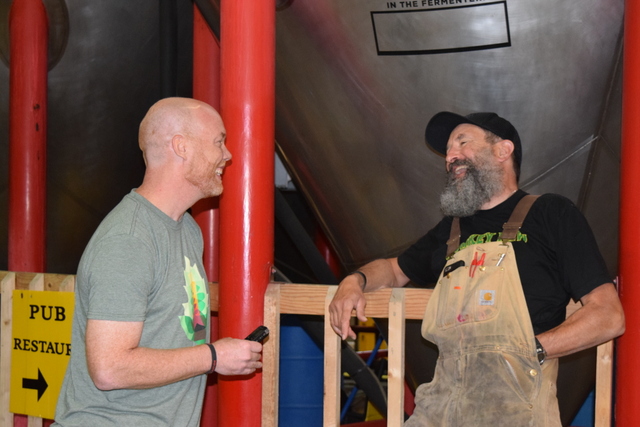
CBB: John, we really appreciate you taking the time today. I realize you’re a very busy man, and this is the end of your day. It’s kind of crazy that you’ve been doing this for nearly three decades now. Are you surprised at how big the craft industry is today?
John: Yeah. It’s pure insanity. It’s too crowded out there. I don’t like it as much as I used to.
Really?
I liked it when there was a lot of growth going on. Maybe in the early, well, the ’90s through the early 2000s.
It used to be more fun?
Yeah. I mean I like a lot of breweries, but it seems to me that everybody that starts even a brewpub, they have to get a mobile canner or bottler and they’re on the shelf. In my mind, a real brewer’s dream is to often just have a brewpub with everything in house.
Has the culture changed here much?
Not a lot. I mean with [original Founder] Jack [Joyce] gone, I think that’s probably the biggest change. He was one of a kind.
I can imagine.
He was amazing at the helm. He just had a different thought process. I mean Brett’s doing a great job [read our interview with Rogue President Brett Joyce right here], and I think their goals are pretty much the same. It’s just different without Jack.
Rogue Farms is different too. It’s growing like everything else. We were just out there. Why is that grow-your-own-beer philosophy important to you and to Rogue?
Oh man, I really love the hops more than anything because I’m one of those big hop guys. It’s also just amazing having our own series of beer with those ingredients exclusively made by us for our products. And now we added two more hop varieties this year. We’ll be able to harvest next year. We just planted them this year. It’s just about having access to, you know, our own stuff. When you’re brewing with your own ingredients that feels pretty great.
How do you pick the varieties you grow?
Well, I pick them because they’re the varieties I like.
[Laughs] Okay. What draws you to a certain hop?
Something specific. Like Crystal hop has that peach flavor, and Horizon is a hop that’s real smooth. Centennial’s got a lot of fruit to it. There’s all different aspects to every hop, and most varieties are dual purpose. There’s only a couple that are just straight this or straight that. But in the end, I’m an old school hop guy. I like some of the new varieties, but there’s a few that I find very offensive. And the tropical fruit range, I mean that’s just too much.
Fruity IPAs seem to be taking over the shelves
I’m an IPA freak too. I just like the old, classic stuff.
A couple decades makes you pretty honest then, huh, in the brewing industry?
I’m an old fart now. I have a lot of standards. I’ve got a lot of opinions, that’s for sure.
Ha. Is there anything that you’re experimenting with these days ingredients-wise that’s unique and interesting?
Ingredients, ingredients… Four my 20,000th batch we used 20 varieties of hops and 20 specialty malts. It was brewed to 20 degrees plato and will be bottle conditioned for 20 days. It also has a 20-year shelf life.
Nice.
I thought that was kind of exciting. But other ingredients. I mean we’ve done a lot over the years, like oysters or sriracha. That was kind of extreme back in the old days.
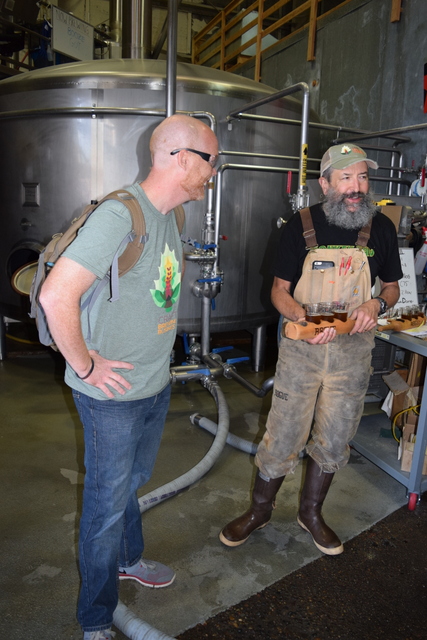
No testicles? No cow testicles? [in reference to Rocky Mountain Oyster Stout by Denver’s Wynkoop Brewing]
No. That was the joke when we brewed our Oyster Cloyster Stout. Are those Rocky Mountain oysters? Oh, no, no…
That’s reassuring. I’m having oysters tonight.
I mean Rocky Mountain Oysters. Really? Give me a break. You know?
Do you think it’s gone a little too far out there?
Yeah, there’s some stuff that just feels obscene.
Yeah. I was talking to Brett yesterday. He was saying the experimentation is crazy out there right now.
Keep some sanity. Try to keep it as pure as you can. Don’t gross people out. They thought the Beard Beer was bad enough, and I always tell them, you know, my beard has never been in your beer. It was at a laboratory. Contained.
Speaking of that, what advice would you give to a brewer who wants to get in the industry and make this a profession?
Just make some well-made simple beers to start, you know, and just keep it as clean as you can. Make a core group and just try to make them really well. What’s wrong with a standard pale ale? Make a core group that are really well done, and when some of those take hold, you can get more creative. I would also recommend to somebody to stay away from filtration.
Maybe just do some fining. They have finings now that are vegetarian-friendly that you can use. Stay away from gelatin and animal products because you always get that question from vegetarians and vegans. Finings are a good way to go because some yeast just doesn’t settle out. Sometimes you can just let it settle, but only if you’ve got the tanks and the time, but I would stay away from filtration altogether if I was starting out.
Great advice. What’s going on with Rogue these days? Anything new? You guys are getting a canning line soon. That’s exciting.
Yeah, the cans are here to stay. One of our latest projects is the Rolling Thunder series, where our beers are aged in our own oak barrels. You know, we have our own cooper now. We’ve got two coopers now. So we put our whiskey that we distill here in our barrels, and then after that, when we dump those out, then we put our beer in them. The first series was an imperial stout. It’s bottle conditioned, which is the first time for us. We’re very excited about that.
How did it turn out?
Oh, it’s great. Bottle conditioning, that’s something else that I would, as a small operation I would try to pursue, bottle conditioning. The longevity is amazing when you bottle condition. If you can get away with it. Even can conditioning is the way to go.
Very cool. What do you think your challenges are out there these days? Ingredients? Competition?
Ingredients aren’t that difficult to obtain. Even the hops. I mean anything I want, and maybe it’s because we’re a bigger brewery. I just make a phone call, but there are a lot of sources out there. And the malts, you know, from our farm and anything else out there. I don’t think there’s that big of a problem like I’ve been hearing.
Competition is fierce.
I’ll tell you what. I’d hate to be a beer salesman. It sucks.
But what if this brewing thing doesn’t work out for you?
I’ve been on the road a few times. Shit, I’d hate to have that job, man. Can’t wait to get back to the brewery. Looking at the shelves, like a million different things up there.
It’s crazy.
You’ve got to make something with great packaging. That’s for sure. You can have a great beer with mediocre packaging and unless the word gets out through the internet or something you’ll be relegated to the corner. So you got to have something eye-catching on the shelf. Yeah, it’s brutal out there. I mean you’ve got to have a guy on the street eating the accounts up on a daily basis. A distributor will probably get ten people a day pounding the door down, trying to get something in. I guess success starts with just making good beer.
That’s key.
Try to keep it consistent.
Yeah. Quality is definitely a challenge for a lot of people out there right now.
Oh yeah. Variation. When you get a small batch size, you’re always going to get variations. Bigger guys keep it more consistent by blending. When you have multiple brew tanks here, that keeps it a little more consistent. But we don’t blend — even tank to tank — but we still keep it consistent. You have to have a laboratory to help you out. Yeast cell counts and keep everything clean.
But life’s not all beer. I know that you’re a big biker too. You just got back from Europe maybe?
Yeah, we cycled, me and the wife with a group from Copenhagen to Berlin.
Man, that’s awesome.
It was amazing. 460 miles. It was a great ride, man. I’d do it again in a second.
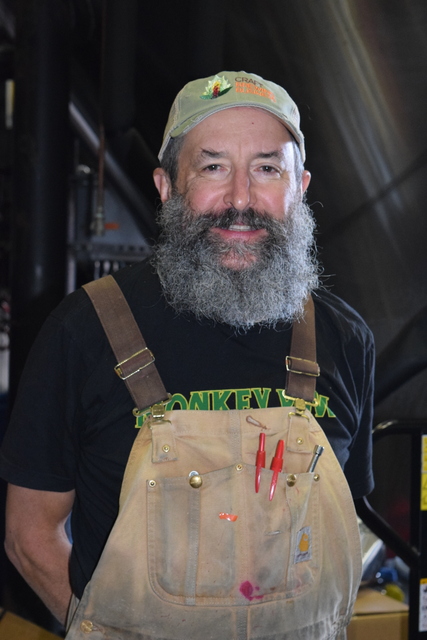
How long did that take?
We did it in, I think, a little less than two weeks. Yeah, you get across from Denmark to Germany on a ferry, and the train gets right on the ferry. It also rolls right off. It’s unbelievable.
Now, you do a charity here locally with biking, is that right?
Yeah. Yeah. The big one coming up in the next couple of weeks is the arthritis ride, which starts at our pub, the Green Dragon, in southeast Portland, and it ends here. And that’s a six-day ride.
Very cool. Maybe we can just talk about philanthropy and Rogue. Because you guys don’t beat your chests a lot about the money that you give to various causes. Is there something in particular you’d like to mention?
Brewers Memorial Ale Festival. The dog festival we have. Stacey and I started that when my dog Brewer passed away in … how many years is that thing going on now? Six, seven years? 2006, right? Yeah. And we donate the proceeds to animal shelters. One time we gave the proceeds to a local canine police officer. That was pretty cool.
I love dogs.
Oh man. You want to see a cool dog we have…
I’ll show you my dog [pulling out my phone].
I’ll show you a puppy picture [pulling out his phone].
Ours just passed away.
Oh, really?
A couple weeks ago.
You’re kidding.
Yeah, this guy here. He’s a little pug.
Oh, Jesus. Pugs are cool, man.
He was an old man. He was 15.
Fifteen’s pretty cool. We lost our boy from cancer. He wasn’t even eight. I mean he had something. It starts in their spleen. About the time you detect it, it’s too late. And by the time it was diagnosed, he died in like four days. But anyhow, we got him [pointing to his phone]. His nephew was born a week after he died. We got a call saying, hey it’s the nephew of Mojo, that’s our guy that died. His sister had pups. So I was like, that’s a no-brainer. It’s this breed here. The curly coated retriever. That’s his sister.
I’m not sure I’ve ever seen a dog like that.
Yeah, they’re the oldest retriever breed.
Ha. I love where this conversation ended up, John. I know you’re a busy man, and I interrupted your brewing today. Thanks for your time.
It was great having your guys out.

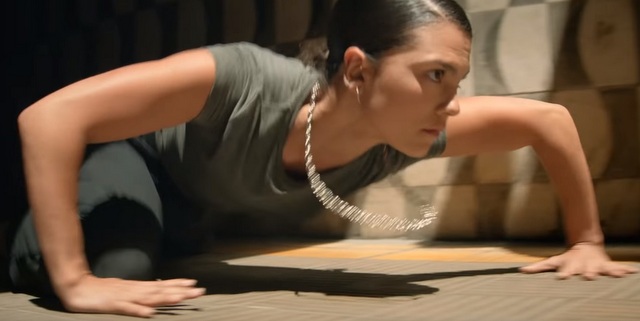
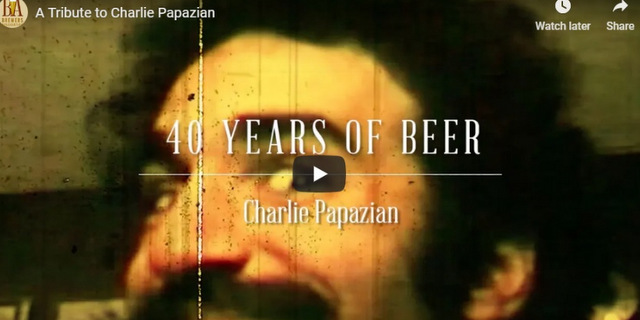


Stephen Conway liked this on Facebook.
Lauren Loeser liked this on Facebook.
Takehiko Nakahara liked this on Facebook.
Rogue Brewmaster John Maier brews 20,000th batch, we visit him in Newport to taste it https://t.co/yd3KXZImf7
Anna Abatzoglou liked this on Facebook.
Rogue Brewmaster John Maier brews 20,000th batch, we visit him in Newport to taste it https://t.co/8MUF3ZU2d8 via @craftbrewingbiz
Corey Lord liked this on Facebook.
John Wanner liked this on Facebook.